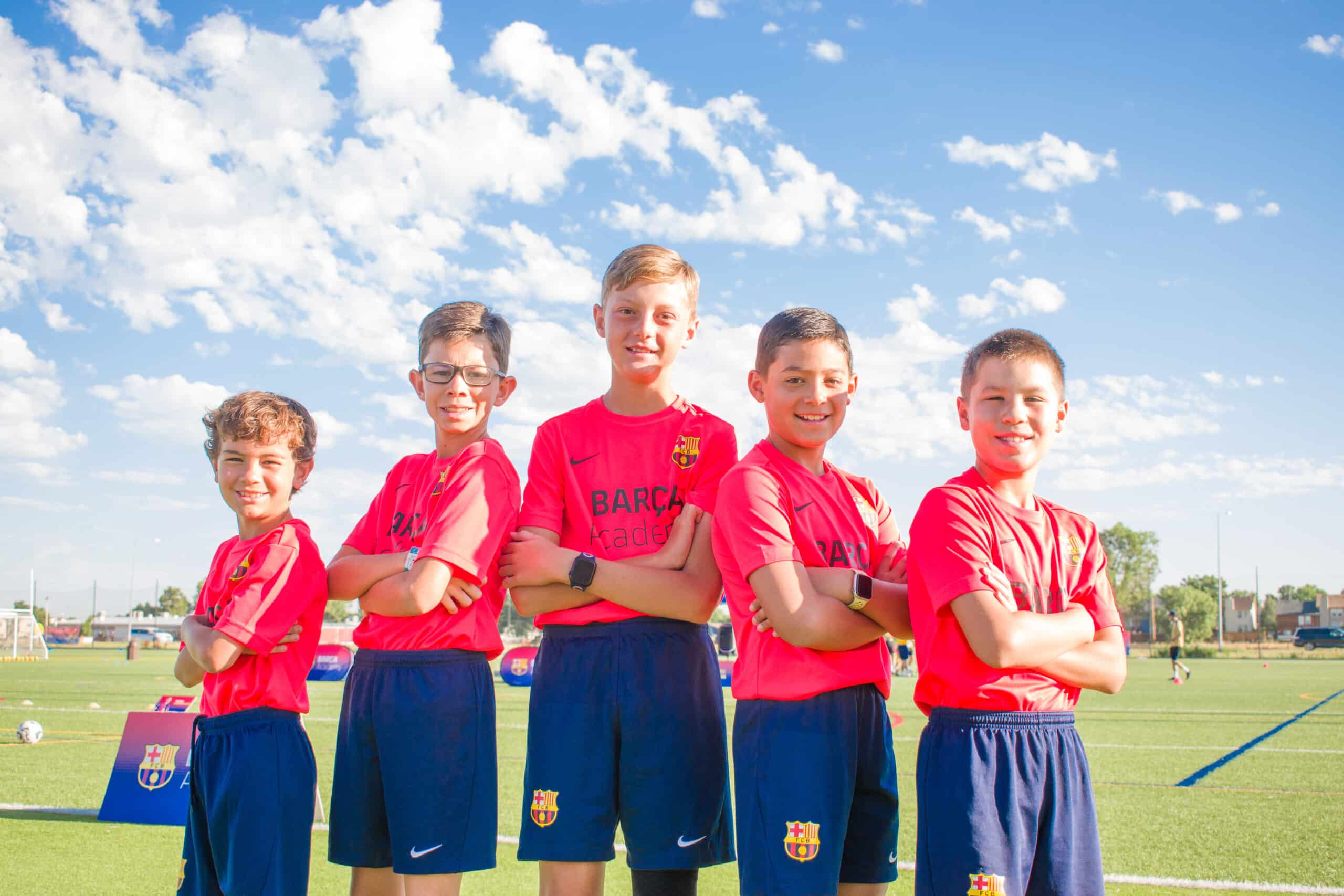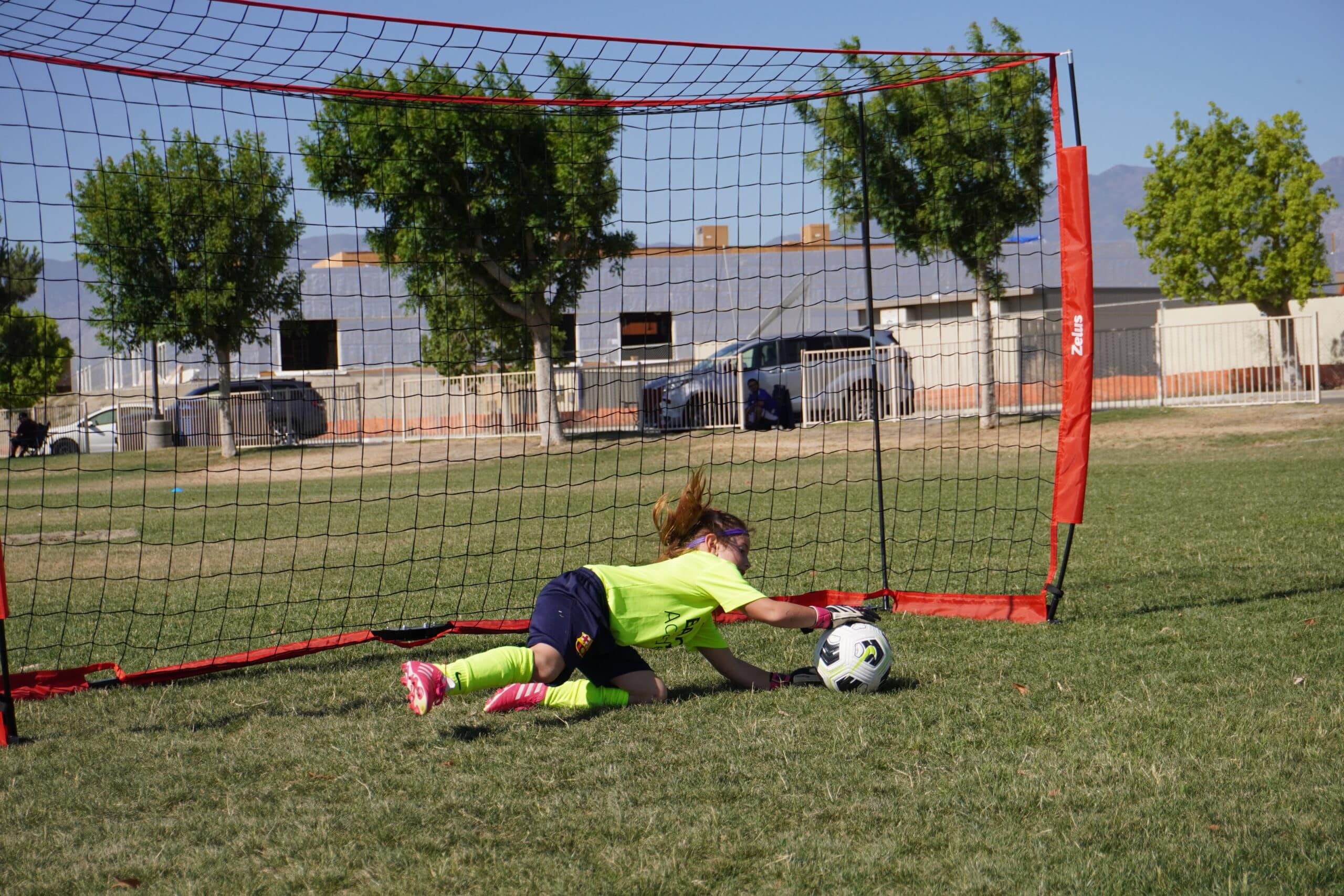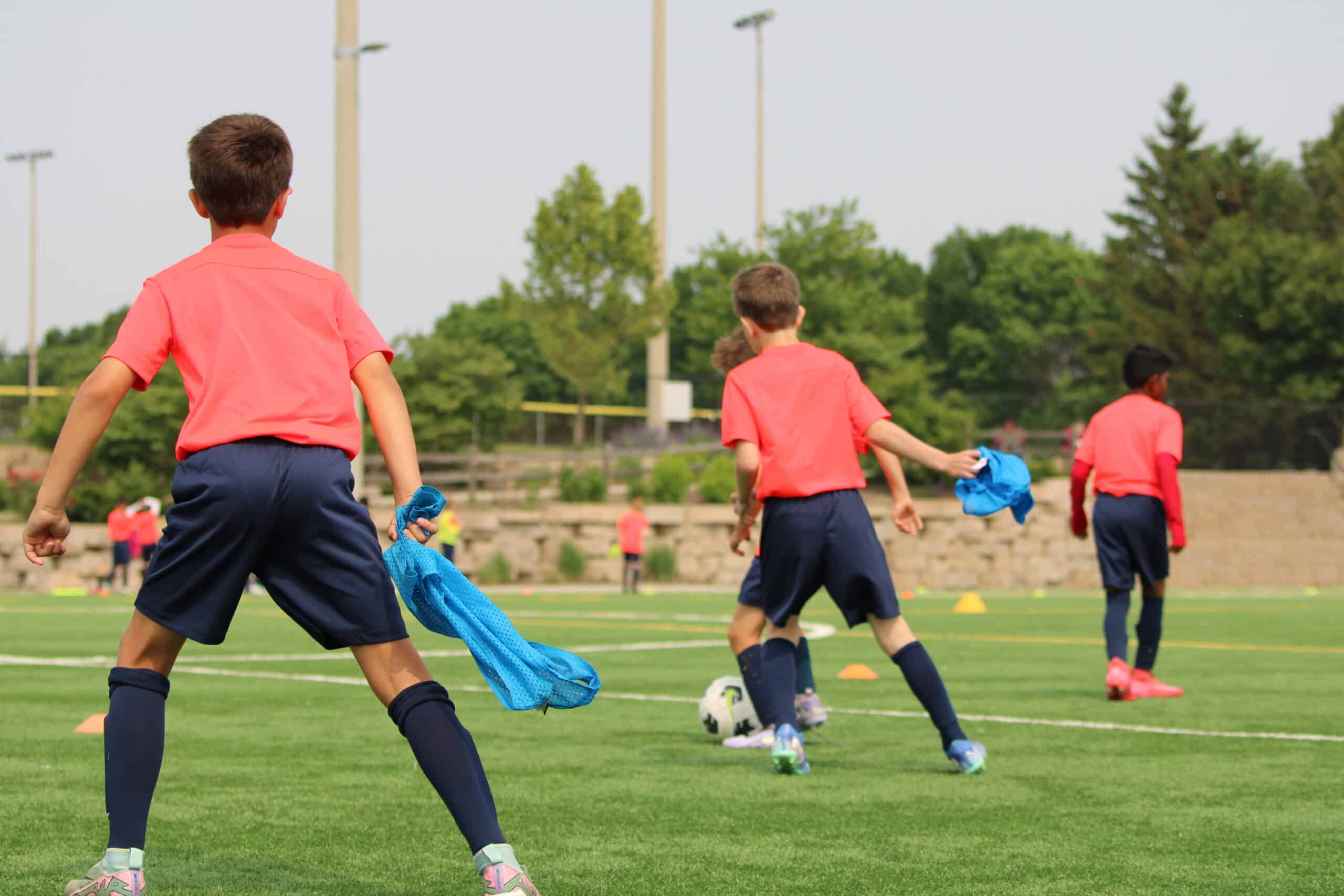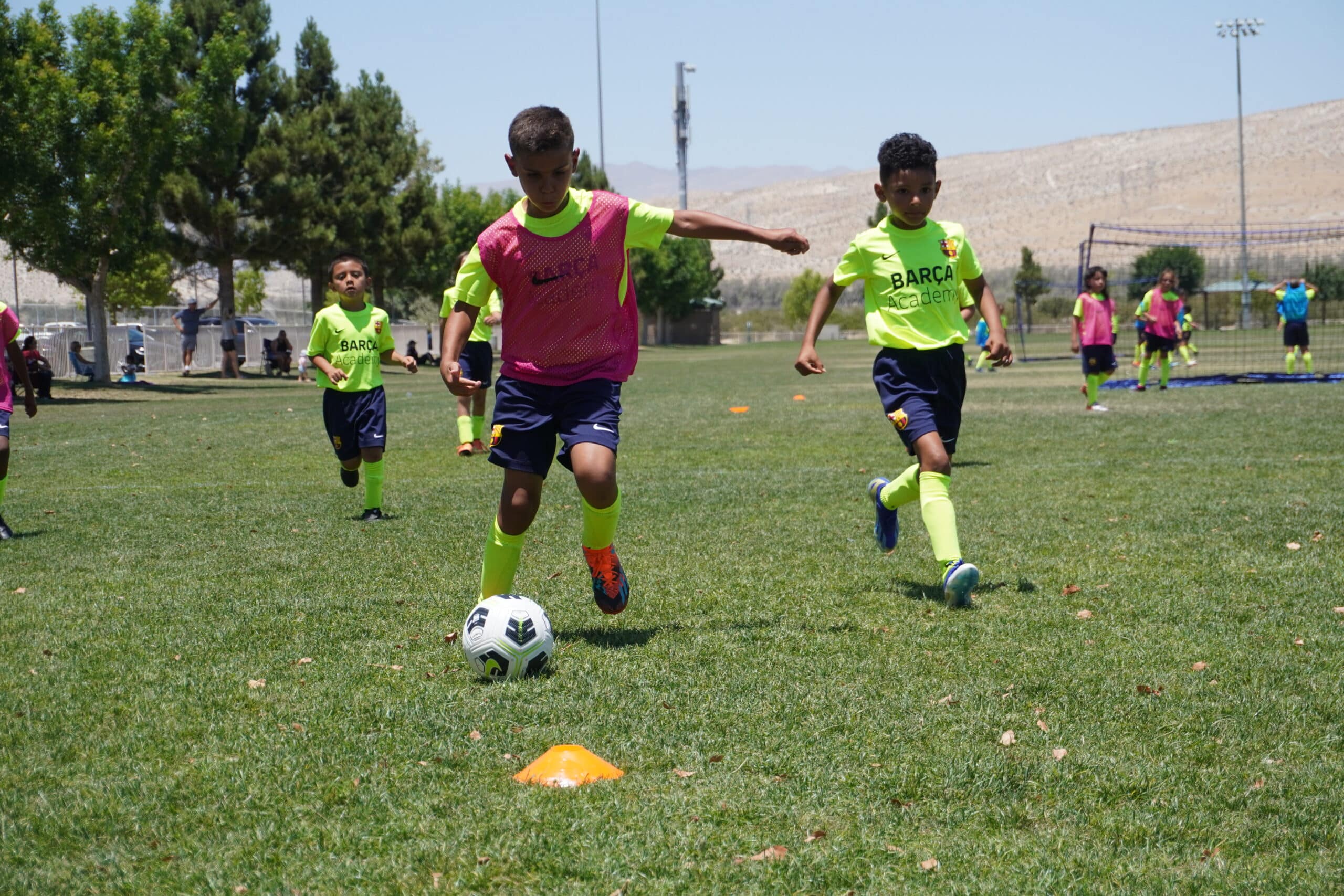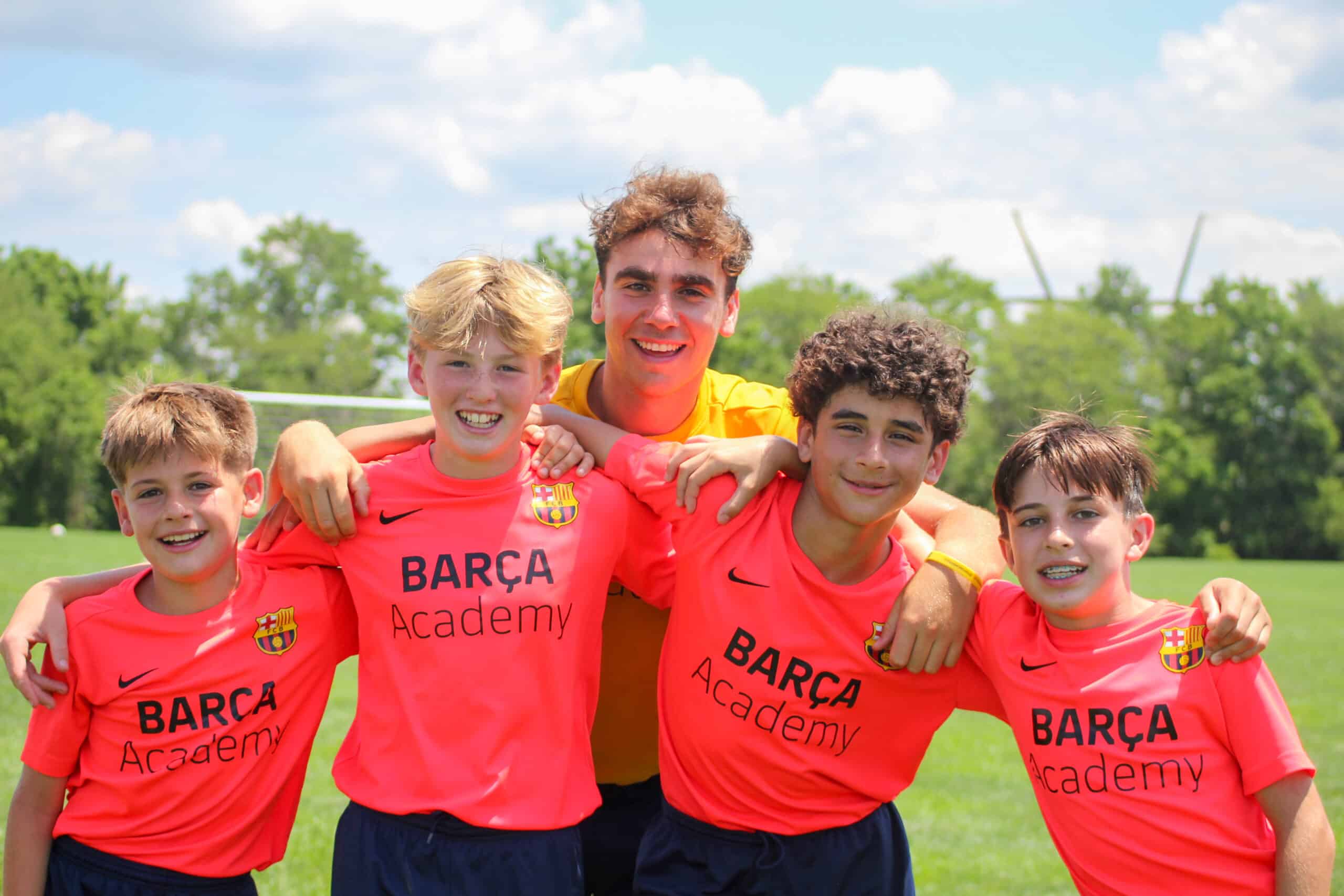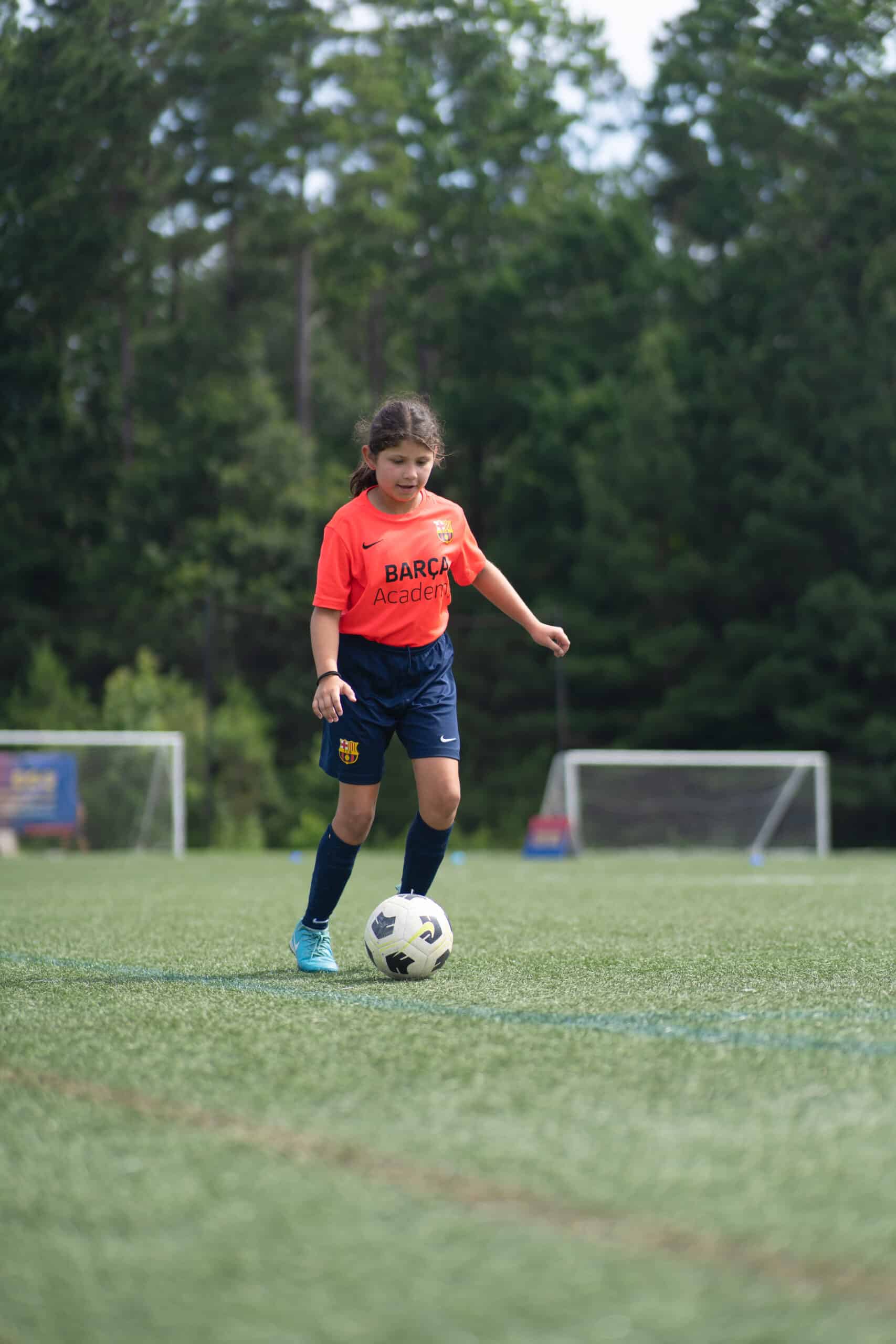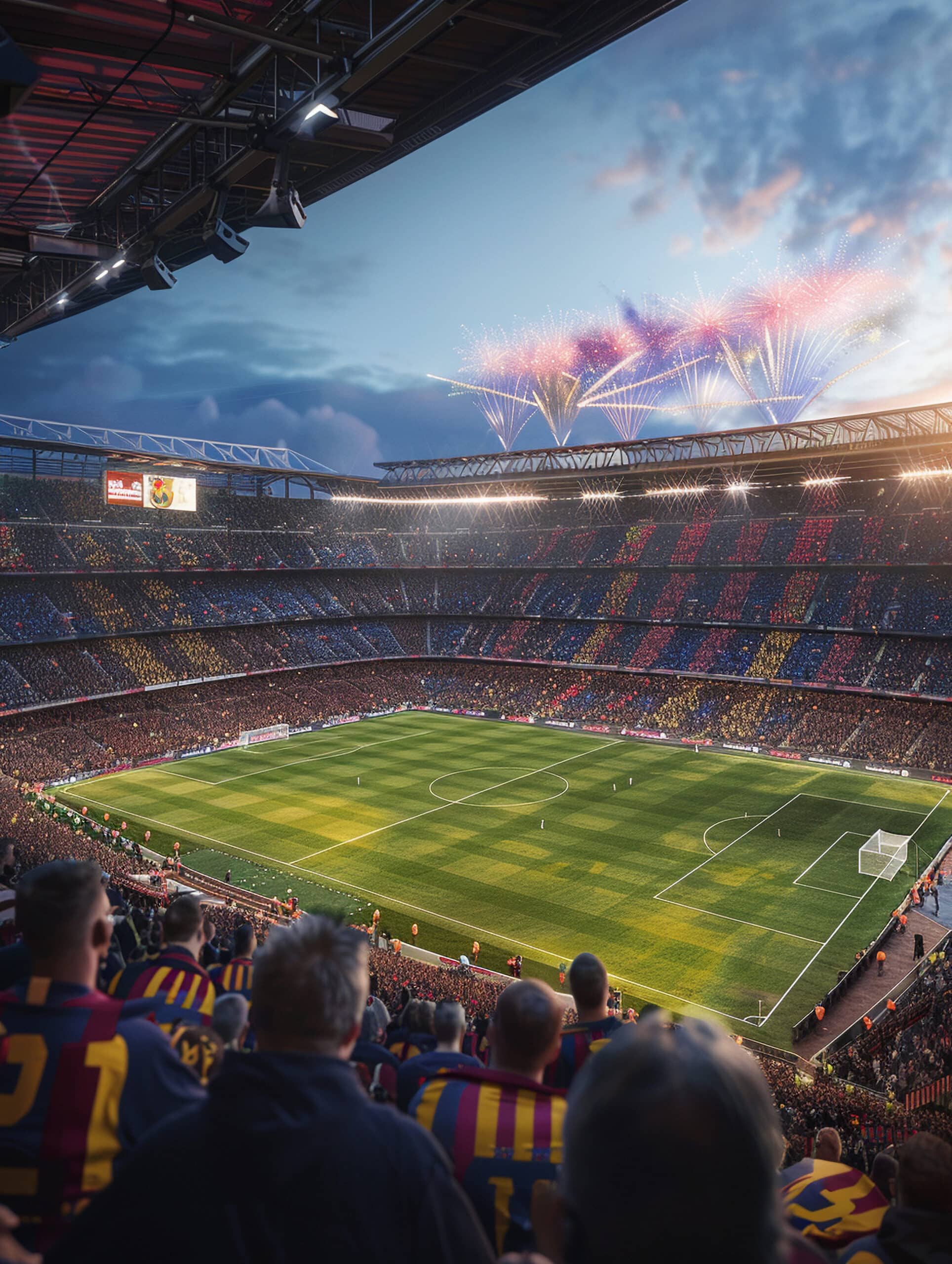Today, we’re getting to know the differenc FC Barcelona coaches throughout history. We’re talking about some of the biggest names in soccer, the architects who have built Barça into the globally recognized powerhouse it is today. Their influence reaches far beyond the confines of Camp Nou, having shaped football tactics and strategies around the world. So, let’s kick off and explore the legends who have walked the sidelines for one of the world’s most prestigious football clubs.
FC Barcelona, affectionately known as Barça, has often been synonymous with greatness in the world of football. We do not just credit this greatness to the skill of the players, but also to the tactical brilliance of the men standing on the sidelines, orchestrating every move – the coaches.
FC Barcelona Coaches: A spectrum of styles
Since the club’s inception more than a century ago, a spectrum of different styles and philosophies has graced the FC Barcelona coaching roster. These men come from diverse backgrounds and have individualistic approaches to the game, but they all share one common goal – to uphold the prestige and success of the Blaugrana.
- Rinus Michels: Known as the father of ‘Total Football’, Michels brought a revolutionary approach to Barça in the 1970s, setting the stage for the dynamic, attacking style the club is known for today.
- Terry Venables: Leading the club to its first European Cup final in the 1980s, the Englishman implanted a pragmatic style of play that proved effective in the continental competitions.
- Frank Rijkaard: The Dutchman brought a romantic vision of football to Barça in the new millennium, combining possession and attacking play to deliver mesmerizing performances on the pitch.
These are just a few of the luminaries who have held the reins at FC Barcelona, each leaving their unique imprint on the club’s illustrious history.
More than just a coach
At FC Barcelona, the coach’s role extends beyond just tactics and training. The club expects them to embody its values and philosophy, often referred to as ‘mes que un club’ (more than a club). This phrase encapsulates the social, cultural, and sporting importance of Barça to Catalonia and the world, a responsibility that each coach bears in addition to their footballing duties.
Every coach of this prestigious club must maintain its unique style of play, nurture young talents from the famed La Masia academy, and ensure the team performs at the highest level in all competitions. It’s a challenging role but one that has been embraced and excelled at by the esteemed line of coaches that have graced the club.
In the subsequent sections, we will delve deeper into the lives and legacies of some of the most influential FC Barcelona coaches. So lace up, it’s going to be an exciting and educational journey!
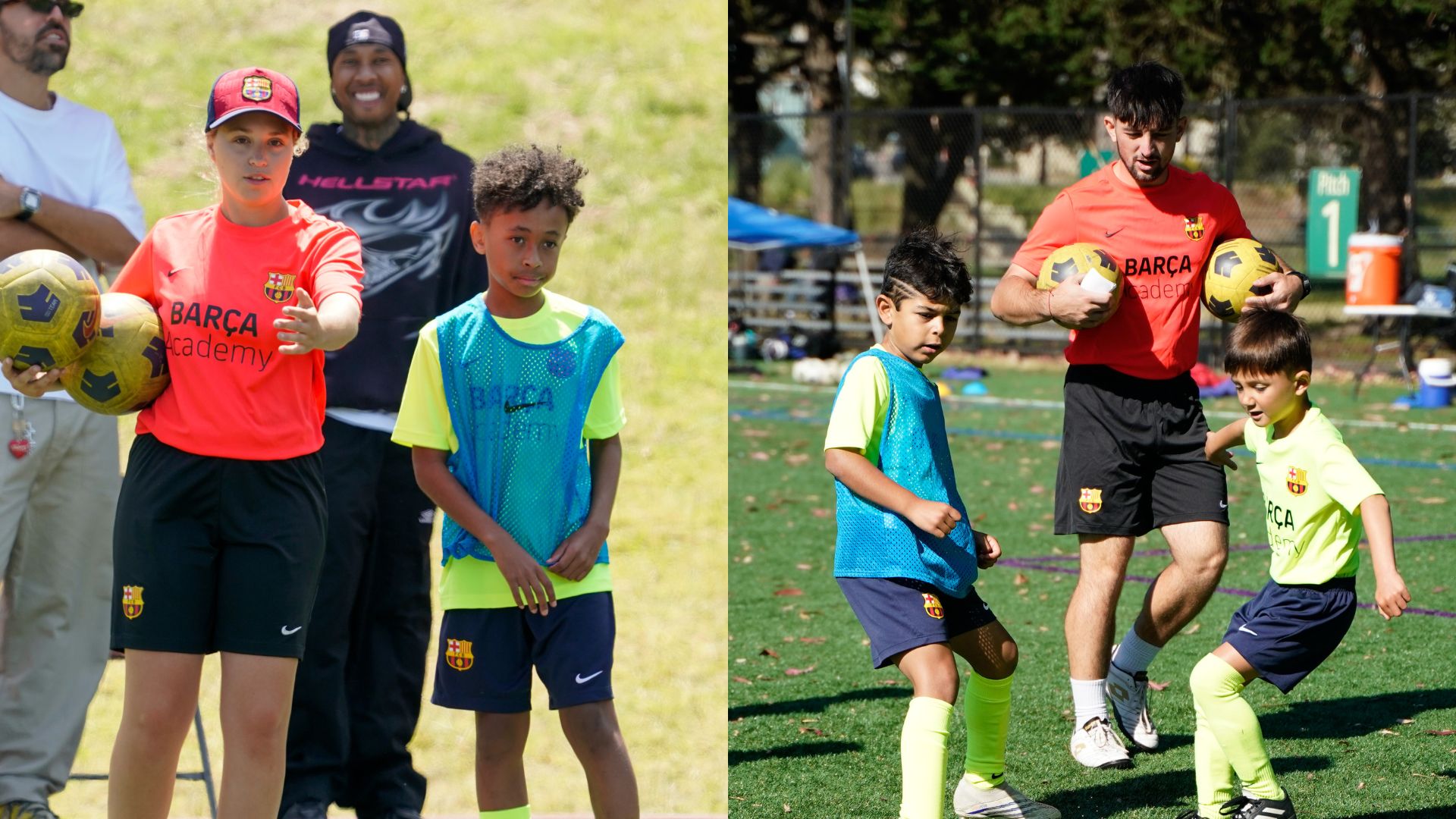
The evolution of coaching at FC Barcelona: a historical perspective
Let’s take a trip down memory lane, shall we? The evolution of coaching at FC Barcelona has been a fascinating journey, filled with ups, downs, and a myriad of transformative moments. What makes this experience even more interesting is the direct impact it has made on the global soccer scene.
Early years: a foundation built on excellence
The story of coaching at FC Barcelona begins during its formative years. The club, founded in 1899, saw a plethora of coaches take the helm in its early decades. Each brought a unique approach to the pitch, but they all shared a common vision – achieving excellence through discipline, teamwork, and unwavering determination. This foundation set the stage for the culture of success that has become synonymous with the club.
Middle years: a shift towards innovation
As the club matured, so did its approach to coaching. The middle of the 20th century saw a shift towards innovation. This period was marked by the appointment of coaches such as Ferdinand Daučík and Helenio Herrera, who introduced new tactics and training methods, helping the team to achieve even greater heights. There was a distinct move away from the traditional, rigid structures of coaching, towards a more dynamic and innovative style.
- Daučík, for instance, emphasized on the psychological aspect of the game, boosting team morale and unity.
- Herrera, on the other hand, was a master tactician, introducing the infamous ‘catenaccio’ defensive strategy to Barcelona’s game.
Late 20th century: the emergence of a revolutionary philosophy
The late 20th century heralded a new era in coaching at FC Barcelona. The appointment of Johan Cruyff as head coach in 1988 set the stage for a revolutionary change – the development of the famed ‘Total Football’ philosophy. This style of play emphasized on possession, positional interchange, and attacking football. He did not just make a strategic change; he defined a new identity for Barcelona, creating a unique brand of football admired around the world.
It’s essential to mention that each of these phases in Barcelona’s coaching history has had a significant influence on soccer globally. The wisdom and philosophies of these great minds have been passed down through generations, reshaping the way the game is played and coached.
21st Century: A Legacy Continues
As we navigate through the 21st century, the evolution of coaching at Barcelona continues. The likes of Pep Guardiola, Luis Enrique, and now, Ronald Koeman have taken the baton, building on the legacy of their predecessors. They have each brought their unique visions and strategies, but the core philosophy of attractive, attacking football remains.
Indeed, the evolution of coaching at FC Barcelona is a testament to the club’s commitment to innovation, excellence, and continuous improvement.
Johan Cruyff
When discussing the coaches that led FC Barcelona, there’s one name that you can’t miss: Johan Cruyff. This Dutch maestro, both as a player and a coach, is considered nothing short of a legend. He not only shaped the face of modern Barcelona but also left an indelible imprint on the world of football.
- In 1988, Johan Cruyff arrived at FC Barcelona as the head coach, having been one of the club’s most revered players in the 1970s. The club was in a state of crisis, having gone through a trophy drought. The fans were restless for success, and the pressure was on.
Implementing the ‘Total Football’ Philosophy
In response to the challenges, Cruyff brought with him a unique football philosophy called ‘Total Football‘. This approach prioritized the team’s collective strength over individual brilliance. It encouraged versatility among players, fluidity in play, and maintaining possession of the ball. This philosophy was new to Spain and indeed, the rest of the world.
Formation of the ‘Dream Team’
- Under Cruyff’s leadership, the team that came to be known as the ‘Dream Team‘ was formed. With players like Pep Guardiola, Romário, Ronald Koeman, and Hristo Stoichkov, Barcelona began to dominate both domestic and European football.
Cruyff’s Legacy
Cruyff’s coaching tenure, lasting until 1996, is considered the most transformative period in Barcelona’s history. He won eleven trophies, including the club’s first-ever European Cup. But it was his football philosophy that proved to be his most significant contribution to the club.
Today, the principles of ‘Total Football’ are deeply ingrained in Barça’s DNA. The fluidity, the attacking style, and the emphasis on possession-based play that we associate with Barcelona today can all be traced back to Cruyff’s era.
Creating La Masia: Barcelona’s Famous Youth Academy
One can’t discuss Cruyff’s influence without mentioning La Masia, Barcelona’s world-renowned youth academy. Cruyff was instrumental in establishing this academy, which has produced some of the finest players in the world, including Lionel Messi, Xavi Hernández, and Andrés Iniesta.
In conclusion, Johan Cruyff’s impact on Barcelona extends far beyond his trophy haul. He is the architect of the modern Barcelona, having shaped the club’s philosophy, style of play, and youth development. His influence still lingers, guiding the club’s future trajectories.
Pep Guardiola: The Golden Era and Beyond
No conversation about FC Barcelona coaches would be complete without discussing the legendary tenure of Pep Guardiola. This former player turned coach brought home an impressive array of trophies and redefined the way the game is played.
Mastermind Behind Barça’s Success
Stepping into the coaching role in 2008, Guardiola quickly made his presence felt. Implementing a possession-based style of play, he led the team to an unprecedented sextuple in his first season, claiming six major titles. This achievement cemented his status as one of the most successful coaches in football history.
What distinguished Guardiola was not just his ability to win trophies, but also his tactical acumen. He embraced and enhanced the tiki-taka style of play, characterized by short passing and movement, working the ball through various channels, and maintaining possession. This style of play not only won games but also won the hearts of fans across the globe, transforming Barça into a global symbol of beautiful football.
Creating Legends
Under Guardiola’s leadership, players like Lionel Messi, Andrés Iniesta, and Xavi Hernández flourished and evolved into some of the best footballers in the world. These players, under Guardiola’s guidance, set new records and defined an era of football that will be remembered for a long time to come.
The Legacy of Guardiola
Guardiola’s tenure at Barcelona, though relatively short, was incredibly impactful. He won 14 trophies in just four years, a feat that remains unmatched. More importantly, he established a blueprint for success that has influenced not just Barcelona, but football as a whole.
- The Guardiola Philosophy: His tactical philosophy, now known as ‘Guardiolaism’, has had a profound influence on the game. His insistence on possession-based play and high pressing has been emulated by teams worldwide.
- Influence Beyond Barça: Guardiola’s influence didn’t stop at Barcelona. After his departure, he moved on to coach Bayern Munich and Manchester City, where he continued to implement his tactics and win numerous titles.
- Paving the Way: Guardiola’s success on the bench paved the way for other former players to take up coaching roles, proving that a good player can also become a great manager.
Guardiola’s era at FC Barcelona was undoubtedly a golden one, filled with trophies and unforgettable moments. His contributions to the club, and the sport, continue to be felt today, making him a true icon of the game.
Luis Enrique and Ernesto Valverde: Overcoming Challenges
When talking about FC Barcelona coaches, it’s impossible not to acknowledge the impactful roles of Luis Enrique and Ernesto Valverde. Each with their own unique styles and approaches, they both made significant contributions to the club’s rich history, despite facing a myriad of challenges along the way.
The Luis Enrique Era
Former Barcelona player Luis Enrique took the reins in 2014, already familiar with the high expectations and pressures associated with the club. He implemented a breathtaking attacking style of play during his tenure as manager, often resulting in high-scoring games and thrilling last-minute victories.
One of Enrique’s most significant achievements was his successful orchestration of the ‘MSN’ trio – Messi, Suarez, and Neymar. This triad of talent drove Barcelona to a treble in Enrique’s first season, capturing the La Liga, Copa del Rey, and UEFA Champions League titles.
However, Enrique’s tenure was not without its challenges. His intense style and demanding approach sometimes clashed with the squad, leading to criticism and occasional strife. Yet, Enrique remained unfazed. He was firm in his belief that hard work, discipline, and a relentless pursuit of victory were the keys to overcoming adversity.
The Ernesto Valverde Era
Following Enrique’s departure in 2017, former Athletic Bilbao manager Ernesto Valverde stepped in. Valverde brought a more pragmatic approach to the game, focusing on tactical discipline and defensive solidity.
Under his guidance, Barcelona secured consecutive La Liga titles in 2018 and 2019. Valverde returned to a more controlled style of play during his era, reflecting the traditional ‘tiki-taka’ philosophy that Barcelona is known for.
Nevertheless, Valverde faced his own set of challenges during his tenure. Disappointing exits in the Champions League and a seeming over-reliance on Messi led to criticism. However, Valverde maintained a stoic perseverance, consistently emphasizing the importance of teamwork and strategic planning.
A Legacy of Overcoming Challenges
Both Enrique and Valverde faced their fair share of challenges while at Barcelona, and both responded with determination and resilience. Their eras, while different in style and approach, are united by a common theme: overcoming adversity. They stand as a testament to the importance of steadfast leadership, tactical ingenuity, and the unyielding spirit of FC Barcelona.
Despite any hurdles they encountered, Enrique and Valverde each left an indelible mark on the club, furthering its storied legacy and setting the stage for its future successes.
Ronald Koeman: The Current Era and Vision for the Future
Let’s turn our attention to the man at the helm of the FC Barcelona ship right now, Ronald Koeman. He’s no stranger to the club, having donned the Barcelona jersey as a player in the past. Now, he’s back in a different role, but with the same passion and drive to steer one of the world’s most iconic soccer teams into a bright future.
A Walk Down Memory Lane
Before we delve into his coaching strategy, let’s take a quick detour down memory lane. Ronald Koeman, as a player, was part of Johan Cruyff’s “Dream Team” that made history in the early ’90s. Did you know Koeman’s stunning free-kick in the 1992 European Cup final brought home Barça’s first ever European trophy? Pretty impressive, right?
The Koeman Philosophy
Fast forward to the present, and Koeman is applying a mix of traditional and innovative approaches to his coaching. He’s a big believer in Cruyff’s philosophy of possession-based, attacking football. Yet, he’s not afraid to inject his own flavor into the mix. He consistently rotates his squad and experiments with different formations, keeping opponents guessing.
- Emphasis on Youth: One notable aspect of Koeman’s approach is his faith in young players. He opened avenues, allowing new talents like Ansu Fati, Pedri, and Ronald Araujo to shine on the big stage.
- Tactical Flexibility: Koeman has shown versatility in his tactics, shifting from the traditional 4-3-3 formation to a 3-5-2 system, focusing on maintaining possession and applying high pressure.
- Defensive Solidity: Strengthening the defense has been a priority for Koeman. Under his tenure, Barça’s defense has shown marked improvement, exhibiting more consistency and better organization.
Challenges and the Road Ahead
It hasn’t been all smooth sailing for Koeman, having faced a significant hurdle in the form of the club’s financial constraints. This has inhibited his ability to strengthen the squad with new signings. Nevertheless, he shows resilience and makes the best use of the resources at his disposal.
Looking ahead, Koeman’s vision includes further integrating youth into the first team, building a squad that can compete at the highest level, and of course, ensuring Barça remains a powerhouse in global soccer. It’s an uphill task, but if there’s anyone who can shoulder the weight of expectation, it’s Ronald Koeman.
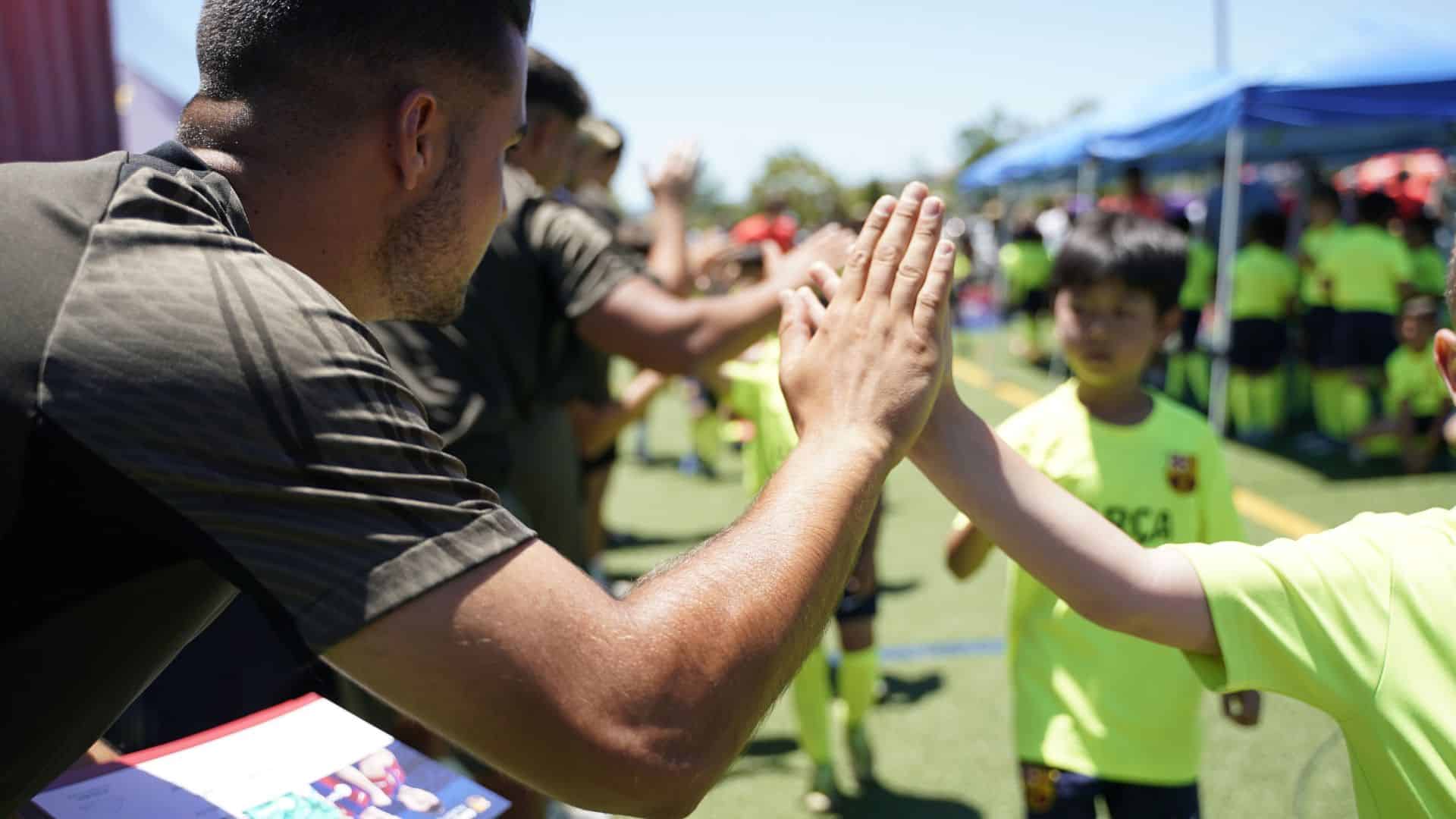
The Influence of FC Barcelona Coaches on Global Soccer Tactics
The ripple effect of FC Barcelona’s coaching prowess transcends the boundaries of their home ground, Camp Nou, influencing soccer tactics worldwide. FC Barça coaches left an indelible mark on the beautiful game, shaping how it is played and coached across the globe.
Revolutionizing Possession Football
The likes of Johan Cruyff and Pep Guardiola, two of the club’s most influential figures, have championed a style of play that prioritizes keeping the ball. Many teams worldwide adopted this strategy, known as possession football.
- The essence of this tactic is constant circulation of the ball, looking for gaps in the opposition’s defense. It’s a strategy that requires exceptional technical skill and footballing IQ from the players.
- Moreover, it is heavily reliant on the concept of pressing, where players work hard to regain possession as soon as they lose it. This high-pressing style has become a staple for many top-level teams around the globe.
Developing a Unique Playing Style
Another significant contribution from FC Barcelona’s coaching lineage is the development of a unique playing style that has become synonymous with the club. Often referred to as tiki-taka, this style involves intricate short passes and high-level movement.
- Various teams outside of Spain have effectively employed the tiki-taka style, which relies heavily on players’ technical skill, vision, and versatility.
- Moreover, it places an emphasis on youth development, as young players are taught to adapt to this style from an early age. This has influenced many clubs worldwide to invest significantly in their youth academies.
Impacting Individual Roles and Tactics
Beyond team strategies, the influence of FC Barcelona coaches extends to individual player roles and tactics as well. The evolution of the ‘false 9’ role, most notably utilized by Lionel Messi under Pep Guardiola’s tenure, is a stellar example.
- This position involves a forward dropping deep into midfield, thereby disrupting the opposition’s defensive shape. This tactic has influenced many coaches to experiment with flexible player roles, breaking away from traditional forward positions.
To conclude, the impact of FC Barcelona coaches on global soccer tactics is profound and wide-reaching. Their revolutionary strategies, unique styles of play, and tactical innovations continue to leave a lasting legacy in the world of soccer. Regardless of changes in the club’s leadership, their soccer philosophies will continue to influence the world, a testament to the club’s rich history and its distinguished line of coaches.






